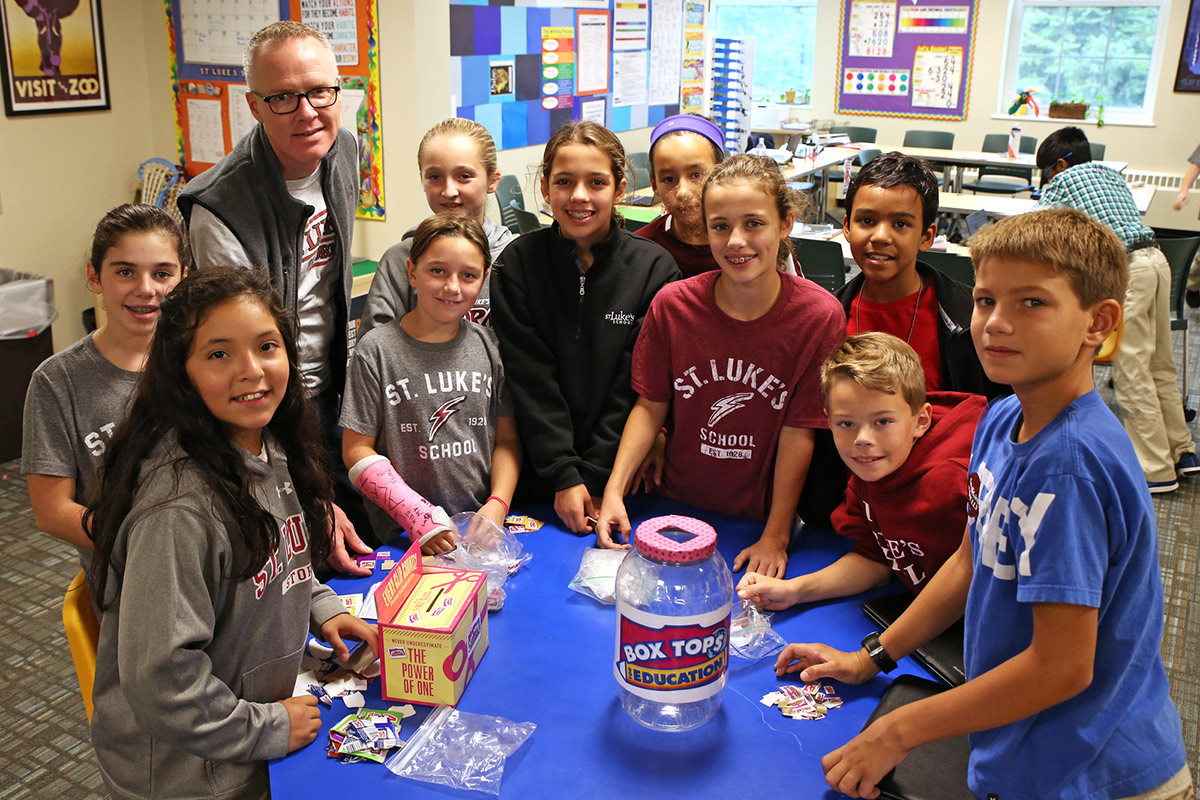“I’m kinda coming up empty/Can’t find my way to you.”
The Broadway hit musical Dear Evan Hansen opened with a song about parenting teenagers. It was a duet sung by the mothers of two high school boys on the first day of the new school year. The song the mothers sing, “Anybody Have a Map?” perfectly captures their feelings as parents. “I’m kinda coming up empty/Can’t find my way to you,” one mother sings to her son.
That song hits the right notes in more ways than one. When teenagers push us away, we can feel like we’re lost, wishing someone would come along and point us in the right direction as parents. What should we do? What will help? And as educators, we know that this disorientation is amplified if your child suffers from anxiety.
The New York Times Magazine ran a cover story, asking, “Why Are More American Teenagers Than Ever Suffering From Severe Anxiety?” The article was published on October 11 and by the end of the week, more people had sent it to us than any article in recent memory. Anxiety is the most common mental health disorder in our country, affecting an estimated one-third of all teens and adults.
St. Luke’s strives to decrease anxiety by...
- Creating a predictable environment where students feel known and safe
- Focusing on a growth mindset. This frames challenges as responsive to effort and strategies
- Ensuring feedback is always for the purpose of learning
- Offering abundant music, art, and physical activities—known to decrease stress
- Fostering a supportive culture where students know they are cared for not because of what they achieve but because of who they are
Families can help by...
- Practicing gratitude—what is something specific that you are grateful for in your day?
- Reframing challenges as temporary and responsive to effort: the quiz didn’t go well? What could you do differently next time?
- Accompanying your child in their emotions while steering clear of taking on their emotions
- Getting enough sleep (everyone!)
- Barring technology in bedroom at night (buy them an alarm clock instead of letting the phone be the alarm clock)
- Letting us know at school if you are concerned about your child’s anxiety levels and want more guidance
Expert Insights on Combating Excessive Pressure…
St. Luke's parents were fortunate to have guest speaker Dr. Suniya Luthar present: “Privileged and Pressured: The Risks of Growing Up in an Affluent Community.” Dr. Luthar’s research finds greater substance abuse, depression and anxiety among affluent teens. In the NYTimes article referenced above she states that affluent kids “never get to the point where they can say, ‘I’ve done enough, and now I can stop’. . . the pressure is relentless and getting worse.”
Dr. Luthar offers strategies to combat excessive pressure, set limits and foster resilience. We thank the St. Luke’s Parents’ Association for inviting Dr. Luthar to share her wisdom with our community.
Though we may not have a clear map for this journey through adolescence, remember our students are building that all-important compass. Parents and teachers can encourage teens to rely on their values and intelligence. Remind them that this time in life is notoriously challenging. They’re not alone—the entire St. Luke’s community is here rooting for them.
Get our latest blog posts!


By Author
- Amber Berry: Former Head of Middle School ( 2 )
- Beth Yavenditti: Director of Global Education ( 3 )
- Carrie Meatto: Spanish Teacher ( 1 )
- Daphne Teittinen-Schreck: ESS Director ( 1 )
- Dr. Jason Haynes: History Chair ( 2 )
- Dr. Stephanie Bramlett: Former Director of Inclusive Excellence ( 2 )
- Gareth Fancher: Director of Emotional Intelligence ( 1 )
- Georgia Rosenberg '19: Student ( 1 )
- Hunter Martin: Summer Program Director ( 1 )
- Jacqueline Nelson: Director of Equity and Inclusion ( 4 )
- Jane Olsen: Fifth Grade Teacher (retired) ( 1 )
- Jason Giffen: Director of Enrollment Management ( 4 )
- Jessie Samuel, Fifth Grade Science Teacher ( 1 )
- Jim Foley: Asst. Head of School for Leadership & Innovation ( 2 )
- Jim Yavenditti: Director of Studies ( 1 )
- Joshua Schneider, Upper School Science Teacher ( 1 )
- Julia Gabriele: Associate Head of School & Chief Financial Officer ( 5 )
- Kate Parker-Burgard: Director of Community Connections ( 22 )
- Liz Perry: Assistant Head of School for Academics ( 11 )
- Mark Chuhta: Asst. Head of Middle School ( 1 )
- Mary Halpin Carter: Head of School ( 3 )
- Nancy Troeger: Director of Marketing and Communications ( 3 )
- Sonia Bell: Director of College Counseling ( 2 )
- Stephen Vehslage: Associate Director of College Counseling ( 1 )
- Students: Jack Briggs '21 and Liam Patty '21 ( 1 )
- Tom Owen: English Teaching Fellow ( 1 )
- Gareth Fancher ( 1 ) [Show All]
Recent Articles
Posts by Topic
- Leadership (44)
- Character (33)
- Mission (32)
- Community (28)
- School (25)
- Innovation in Education (18)
- Lifelong Learning (18)
- Service (18)
- teens (18)
- private school (14)
- Inspiration (13)
- Values (13)
- Moral Compass (11)
- Parenting (10)
- Diversity & Inclusion (9)
- Global Perspective (9)
- Above and Beyond (7)
- Gratitude (7)
- Moral Courage (7)
- Well-Being (7)
- Freedom (4)
- Mindfulness (4)
- SLSHeroes (4)
- college (4)
- Civil Discourse (3)
- College Admissions (3)
- Resilience (3)
- Student Voices (3)
- Technology (3)
- humanity (3)
- Meditation (2)
- Parents as Partners (2)
- Postive (Alumni) Outcomes (2)
- Private School Admissions (2)
- student-led learning (2)
- Athletics (1)
- Family (1)
- Patriotism (1)
- middle school (1)













Leave a comment